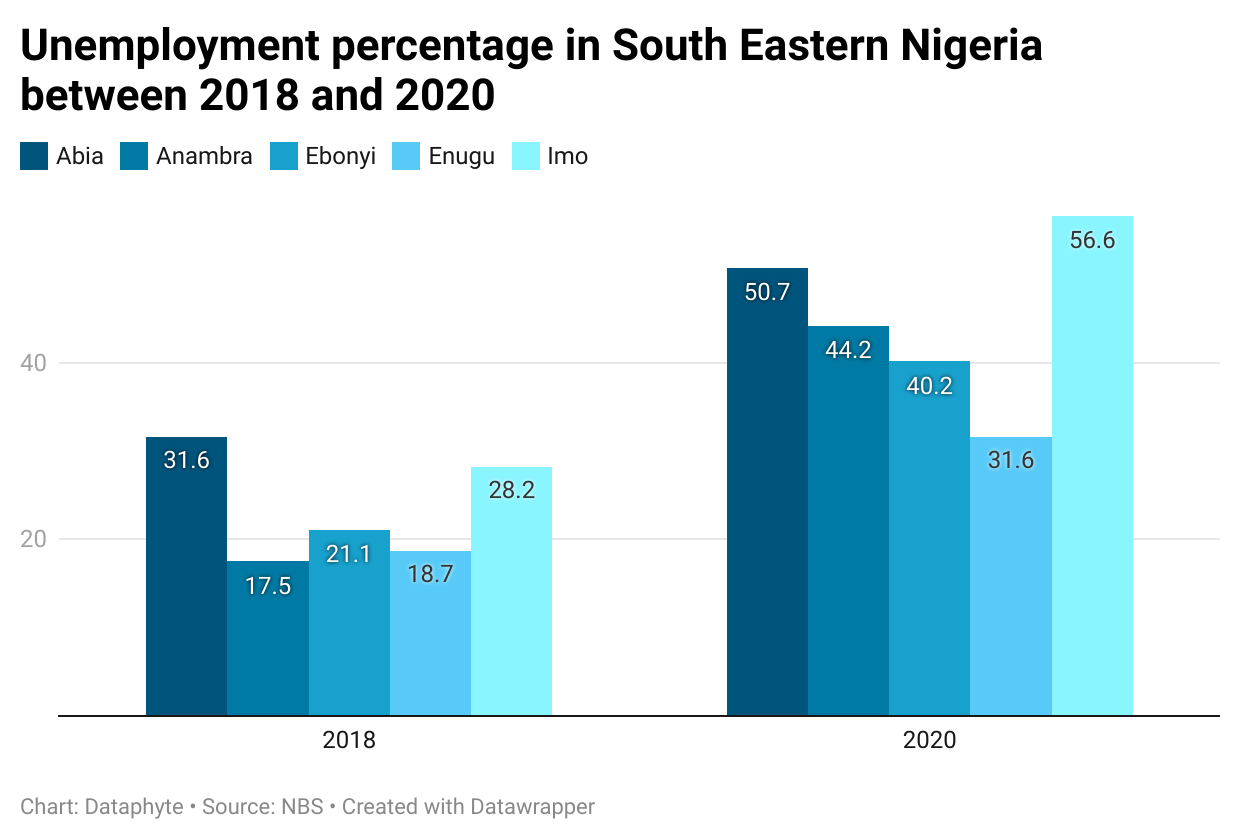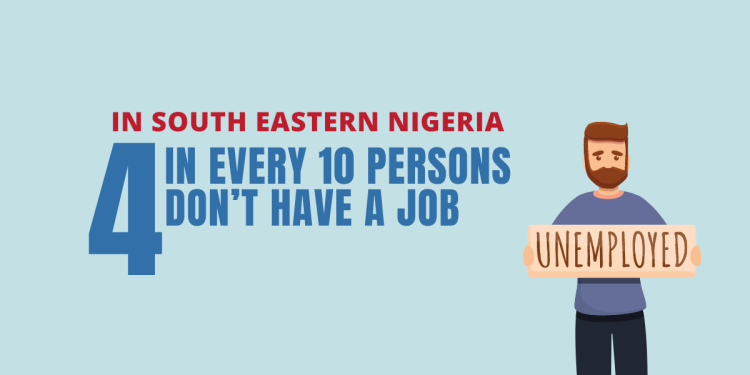A Dataphyte review of Nigeria’s unemployment data between Q3 2018 and the recent Q4 2020, has shown that about four in every ten persons in the South Eastern part of Nigeria are unemployed.
According to the latest figures released by the National Bureau of Statistics (NBS), in 2020 Imo had the highest unemployment rate of 56.64%. In 2018, the state’s record for unemployment was 28.2%.

Abia state has the second highest unemployment rate after Imo, with a 50.07% unemployment rate. In 2018, the state had an unemployment rate of 31.6%.
As of Q4 2020, Anambra has 44.2% unemployment rate although it recorded a 17.5% unemployment rate in 2018.
Ebonyi recorded 40.16% in 2020 and 21.2% in 2018. While that of Enugu stood at 31.62% in 2020 and 18.7% in 2018.
A cumulation of the unemployment percentages shows that between 2018 and 2020, about four in every 10 persons were without a job in Southeastern Nigeria.
Although governors of the region had promised to create jobs to ameliorate unemployment challenges, data shows that they could not fulfil the employment promises as unemployment figures continue to spike.
Poverty strengthened by unemployment has been noted as a major stimulant of conflict and the Southeastern region continues to face insecurity and conflict with records of killings, destruction of properties, etc.
When Dataphyte visited the region, some respondents blamed their willingness to support the quest of agitators on lack of unemployment.
“I have five children and sent all of them to school but they are without jobs, I am still feeding them, nobody is creating jobs or making the environment good for job creation” a respondent told Dataphyte.
Analysts have urged that youth restiveness in the region be tackled with urgent creation of jobs that can help ameliorate the crisis in the region.



